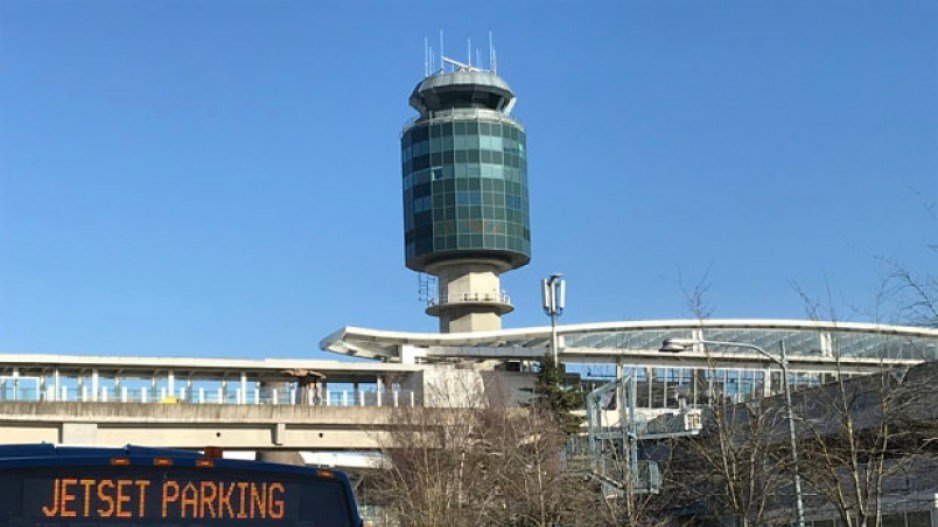What happened: Fears that a pneumonia-like coronavirus that has so far killed at least six people in China may spread to Vancouver heightened early on January 21 Vancouver time with news that a man in Washington State has been diagnosed with the virus.
Why this matters: A global pandemic has the potential to disrupt national economies and business sectors, particularly tourism, as people fear travelling.
The Washington Post reported that a man in his 30s is in stable condition at Providence Regional Medical Center in Everett, Washington. The man, who is not seriously ill, is said to have arrived last week from the central Chinese city of Wuhan, which is the epicentre of the outbreak.
The virus so far has infected close to 300 individuals, mostly in China but also in Japan, South Korea, Taiwan and Thailand in addition to the U.S. It is said to be contagious as it spreads from person to person.
The Vancouver Airport Authority (VAA) told Business in Vancouver in an email that the Public Health Agency of Canada (PHAC) is directing the Vancouver International Airport's (YVR) response to the crisis because it is the government agency responsible for decisions about health-related screening of passengers at Canada’s airports.
PHAC’s plans to have educational messages on arrivals screens and to have an extra question at electronic border kiosks, according to the VAA. That extra question is whether the traveler has been to Wuhan, China – the source of the outbreak.
“They have indicated these measures will be implemented in the coming week,” the VAA said.
No one from PHAC immediately responded to a request from BIV to elaborate on planned measures and on whether there could be temperature screening. It is expected that if someone answers that they have been to Wuhan, China, that they would be checked at YVR for any sign of the disease.
Other airports are stepping up precautions.
At Changi Airport in Singapore, all inbound travellers arriving on flights from China will undergo temperature screening starting on January 22 (today in that Southeast Asian island nation), according to that country’s Ministry of Health.
That precaution is necessary, it said, because the number of infected people is on the rise, the risk of the disease spreading is rising and the volume of passengers is expected to spike given upcoming Lunar New Year visiting.
Canada’s chief public health officer Theresa Tam said yesterday that no coronavirus cases have yet been discovered in Canada, although several people have been investigated.
The outbreak for many brings up memories of the SARS virus in 2002, which killed 800 people and infected more than 8,000 individuals. One indication that the global medical community is taking this seriously is that the World Health Organization said it will call an emergency meeting January 22 to determine whether to designate the outbreak as an international public health emergency.
Michael Curry, an emergency physician and a clinical associate professor at UBC, told BIV that most of the time the preliminary reports of new respiratory infectious diseases exaggerate how serious the new diseases actually are.
"How much it exaggerates, we don't know yet," he said, stressing that we are in the very early stages of learning about the new coronavirus officially known as the 2019-nCoV virus.
Coronaviruses in and of themselves are not particularly fearsome things, he added.
"Almost all of us who are adults have been infected by a coronavirus," Curry said. "About 10% of cases of common colds are caused by coronaviruses. The vast majority of times you get an infection like the coronavirus, you suck it up, you stay home and you don't see a doctor."
Curry suggested that the people whose infections have been recorded so far are likely those who were particularly hard hit by the virus, and that there likely are many more people who have the virus but are not sick enough to seek medical attention.
"The people who are getting tested are the sickest of the sick," he said.
That means that the death rate out of those who have been infected is likely far less than the nearly 2% rate calculated by dividing deaths by total known cases.
Curry added that people are likely spreading the disease before they have developed symptoms, with the result being that airport representatives screening passengers for high body temperatures may not be effective in controlling the spread of the disease.
Flights between China and YVR have been surging in recent years. While the airport has significantly more non-stop off-continent flights than does the Seattle-Tacoma International Airport (SEA), SEA has been catching up and is increasingly the largest competitor with YVR for new airlines and routes.




